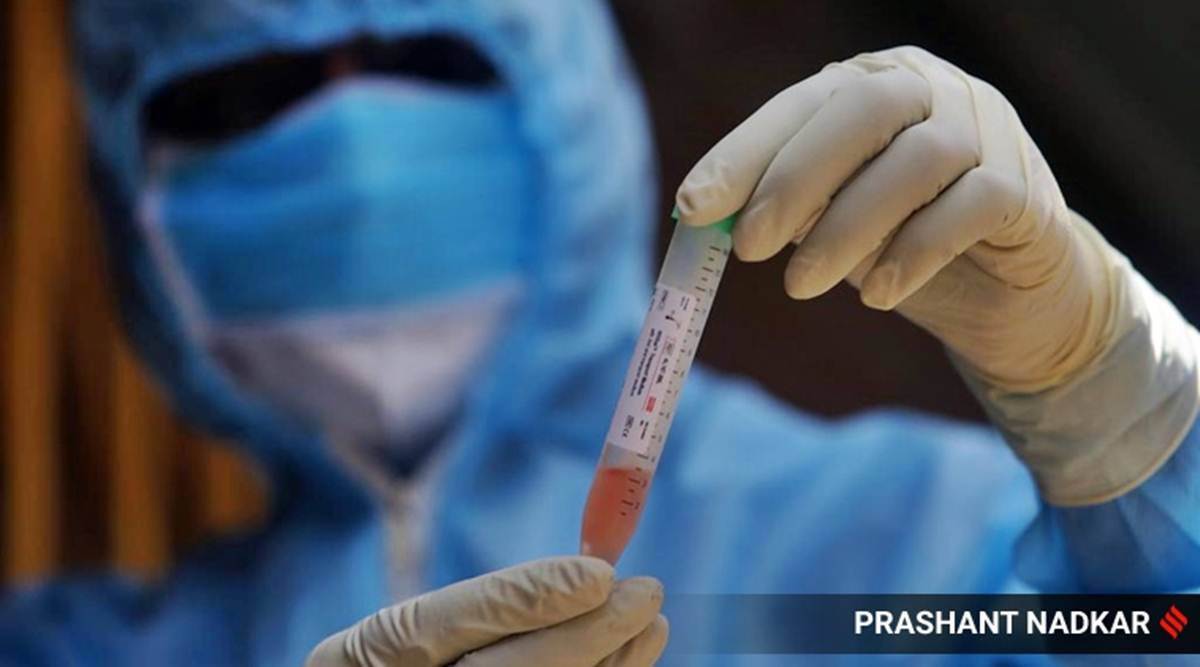 Health Secretary Bhushan said the guidelines for management of cold chain at the last cold chain points and the sessions sites have also been issued to the states.
Health Secretary Bhushan said the guidelines for management of cold chain at the last cold chain points and the sessions sites have also been issued to the states.UNDERLINING THE potential challenges of serious adverse reactions that could be triggered by Covid-19 vaccines during the largest adult immunisation drive expected next year, the central government on Tuesday said it has directed all states to identify at least one health centre in each block level that would be linked to the vaccination centre for management of such adverse events.
During the weekly briefing on the pandemic, Union Health Secretary Rajesh Bhushan reiterated that the time-line for vaccination will not be impacted in the backdrop of the drug regulator currently examining applications of the three vaccine manufacturers who have sought emergency use authorisation of their vaccines.
“The subject expert committee has looked into the three applications and asked for additional data. On the basis of the additional data, the regulator will take a call (on granting emergency use authorization). We don’t believe that this process of examination of the applications by the regulator will have any impact on the timeline of vaccination.” he said.
He said the UK, the first country to begin vaccination,reported adverse events on the first day itself, and that “it is very important that state governments are well prepared on this aspect”.
“Adverse Event Following Immunization (AEFI) is a critical aspect. There is a possibility of adverse events being reported during the Covid-19 vaccination drive… The Centre has given detailed instructions on infection prevention and control practices during vaccination. States have been directed to identify at least one AEFI Management Centre in each block; this centre can be a primary health centre, community health centre, district hospital, or a private health facility. Every session site will be mapped to a designated AEFI management centre,” Bhushan said.
Dr V K Paul, Member, NITI Aayog, emphasised that the additional mechanism on adverse event reporting is being implemented, keeping in view the unique challenge of vaccinating a large adult population, most of who will have associated comorbidities.
“Firstly, this is an adult vaccine. Our AEFI system was designed for children and women; those vaccinations (under the universal immunisation programme) take place in a certain way. When you want to deal with adults, practical aspects have to be tackled. Two, we should remember that these vaccines are on new platforms. Third, multiple vaccines will be used. This brings in complexity. Also, an emergency use authorisation of vaccine brings in even more responsible behaviour,” Paul said.
“Lastly, when we are going for a new vaccine, there will be new aspects, new side-effects and new situations that will have to be kept in mind. Some vaccines might cause an allergic reaction; another might cause a high fever. Therefore, there is always nuance in side-effects – and that has to be factored in the new vaccines,” he said. “Above all, this time, a very large number of target groups will be vaccinated in short period of time. Therefore, there is a need to build on standard principles of AEFI, and make it specific to the fuller dimension of the requirements of Covid-19 vaccines.”
Health Secretary Bhushan said the guidelines for management of cold chain at the last cold chain points and the sessions sites have also been issued to the states. “We will be using 29,00 cold chain points, 240 walk-in coolers, 70 walk-in freezers, 45,000 ice-lined refrigerators, 41,000 deep freezers, and 300 solar refrigerators. All this equipment has already reached the states; further, additional equipment will also be provided to the states,” he said.
“All 36 states and UTs have concluded meetings of steering committee as well as state task force for Covid-19. The 633 district task force which is chaired by the district magistrate have also concluded meetings. Also, the training module for the medical officers, vaccinators, cold chain handlers, supervisors, data managers and ASHA coordinators have been finalised,” he said.